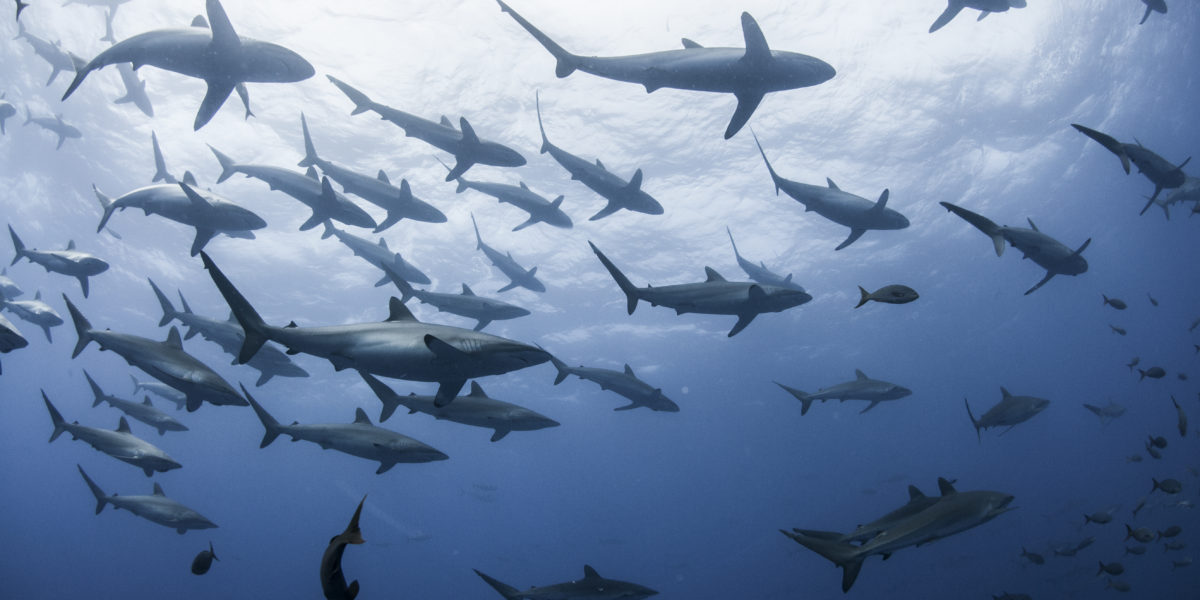
North America’s Largest Protected Marine Area Just Got Expanded
California researchers are using their latest data to further protect Mexico’s thriving marine wildlife

Getty Images / Rodrigo Friscione
Thanks to a team of California researchers, Mexico is making major efforts to protect one of its most powerful natural resources: its thriving population of marine life. Following extensive shark-tagging research by a team of UC Davis researchers, Revillagigedo National Park, the largest protected marine area in North America, has been expanded to more than 57,000 square miles.
The reserve was originally designated last November to prohibit mining, fishing and tourism development on the four volcanic islands making up the Revillagigedo Archipelago, a UNESCO World Heritage site roughly 250 miles southwest of the Baja Peninsula.
Since 2009, researchers from UC Davis have tagged sharks in the area to study their routes, and found that they use far larger courses than previously thought to travel between and around the archipelago. The area is incredibly biodiverse, with populations of hammerhead sharks, humpback whales, dolphins, giant manta rays, sea turtles and countless species of fish. According to James Ketchum, a UC Davis alum whose Ph.D. dissertation argued strongly for a marine reserve in Revillagigedo, sharks were the starting point for the protection of an entire ecosystem.
“When you protect the highly mobile top predator, you protect the reef fishes and reef fauna that are less mobile,” Ketchum said in a statement. “The idea is you’re protecting everything. This archipelago had been highly exploited. The need for protection has been there for at least 20 years or more, and finally it has arrived.”
The research prompted a revised designation of park protection, covering 40 miles surrounding each island, rather than the previously-protected six-mile radii. UC Davis says the area will be patrolled by boat the Mexican Navy, while Pew Charitable Trusts plans to monitor the islands via satellite.If a trip to the Galapagos of Mexico isn’t in your immediate future, you can learn more about the shark tagging efforts on National Geographic’s documentary, Shark Men.
